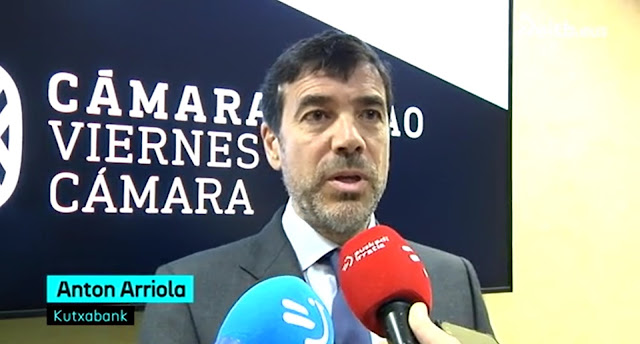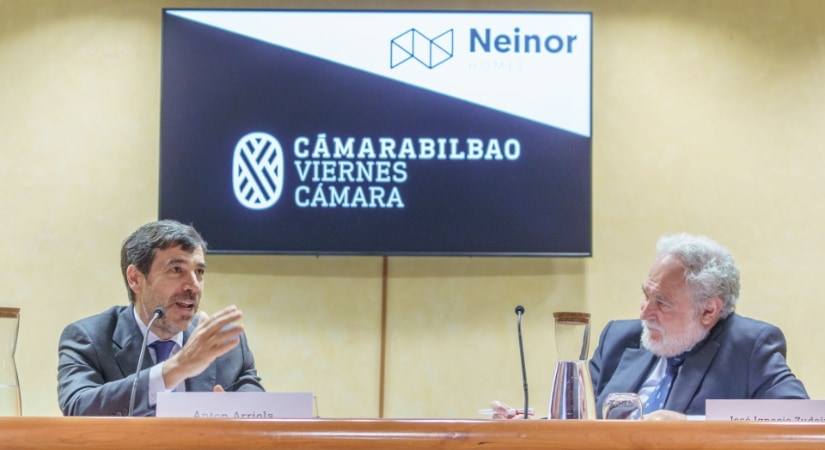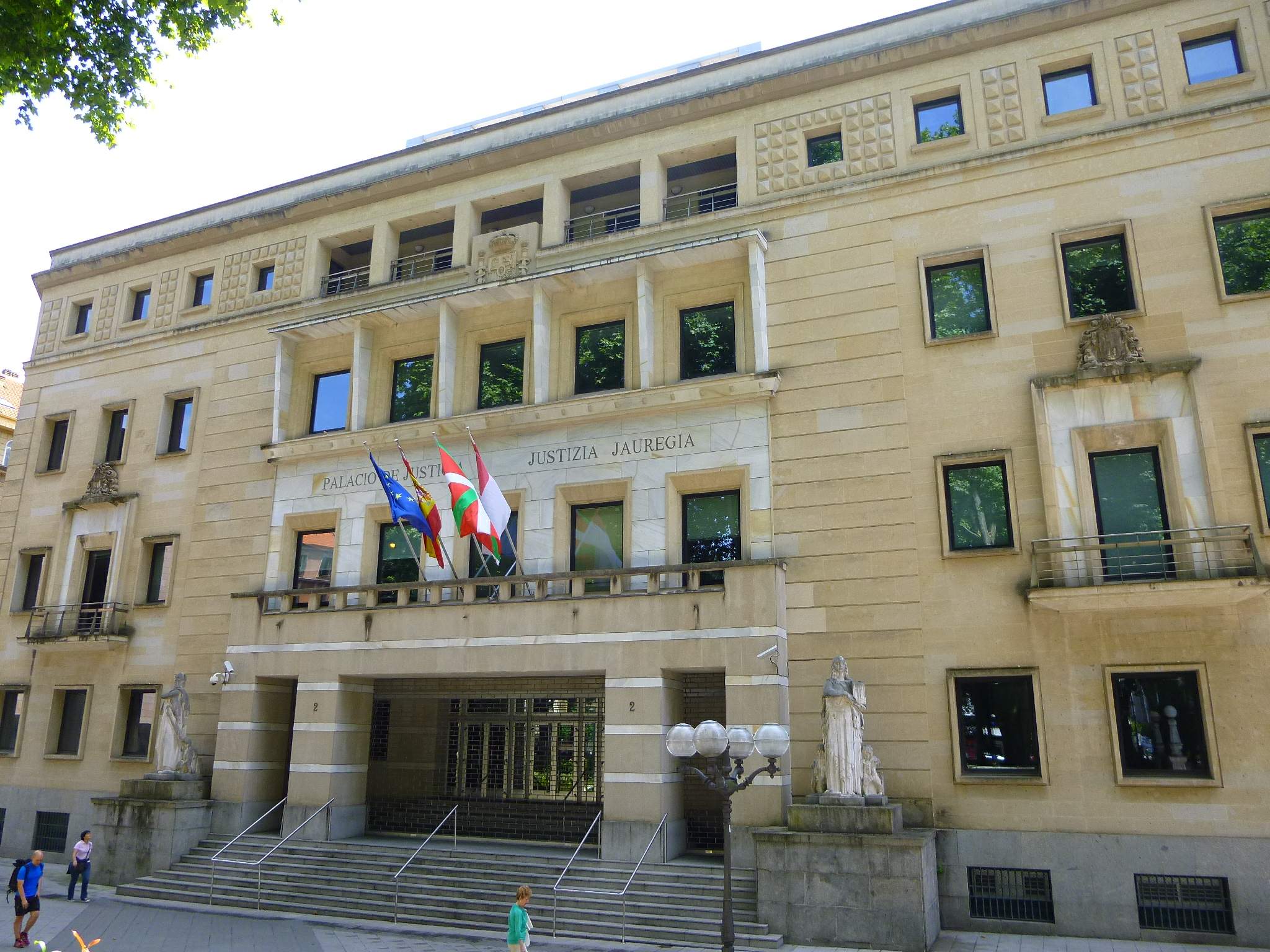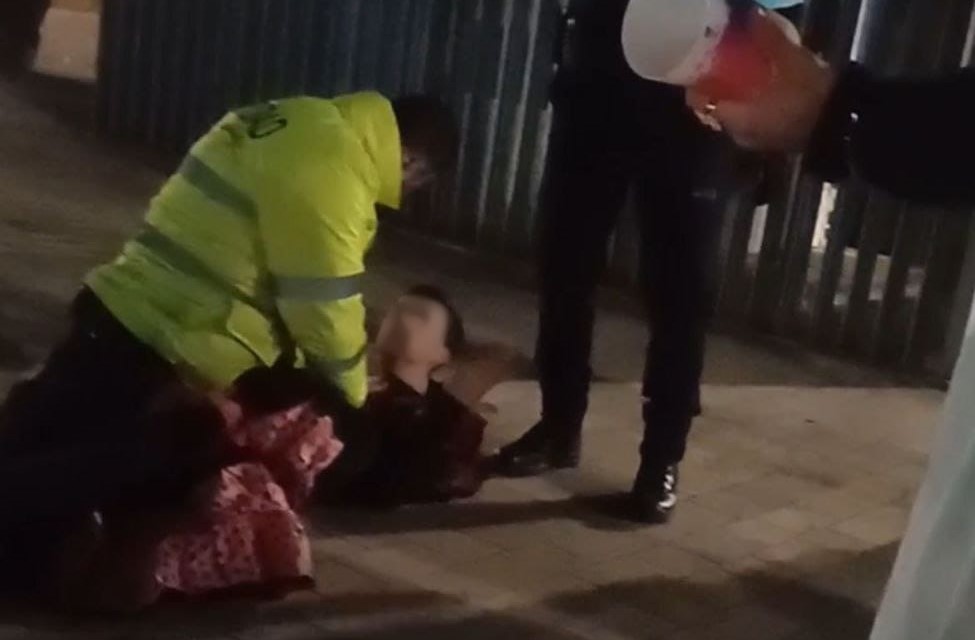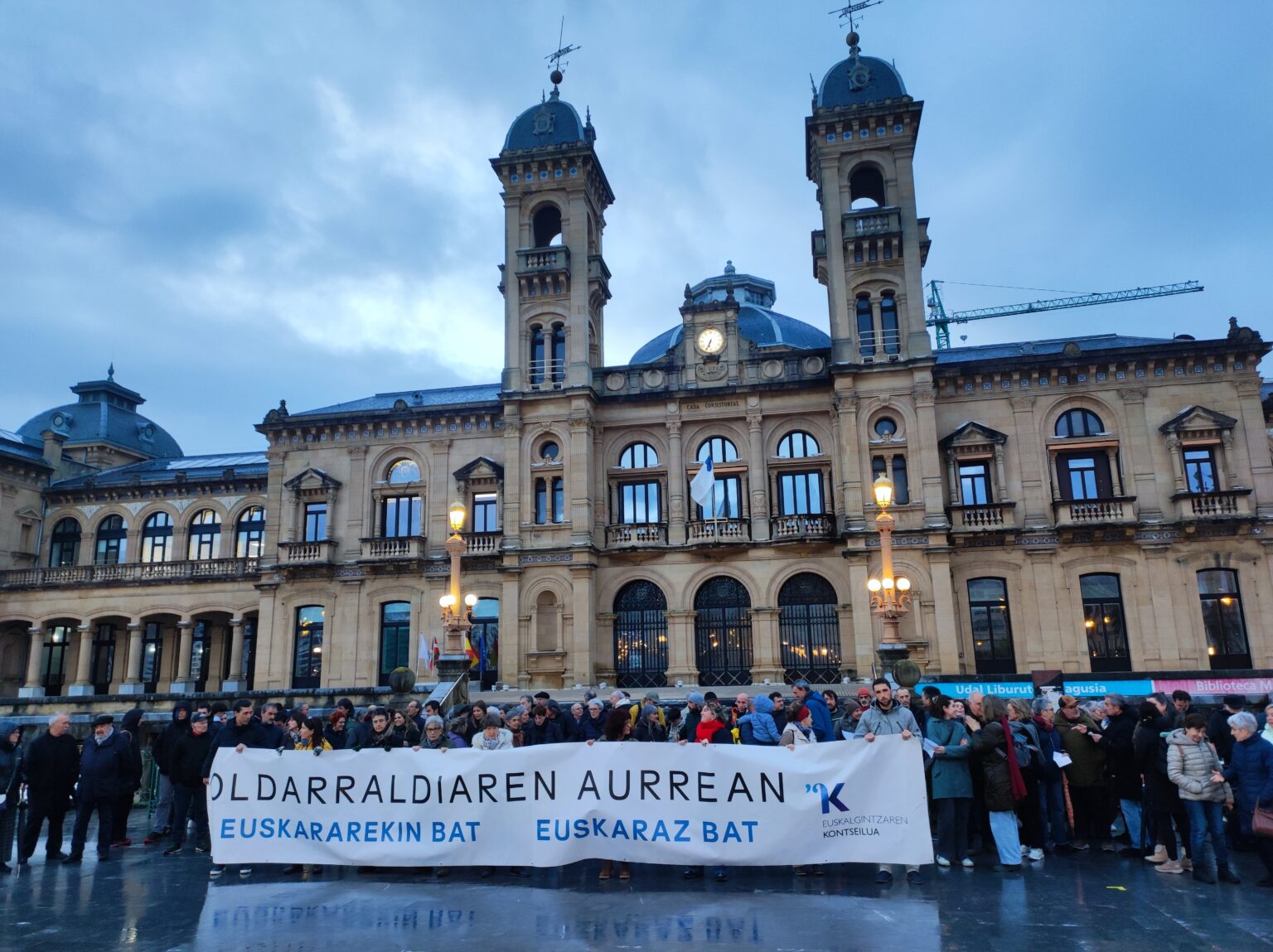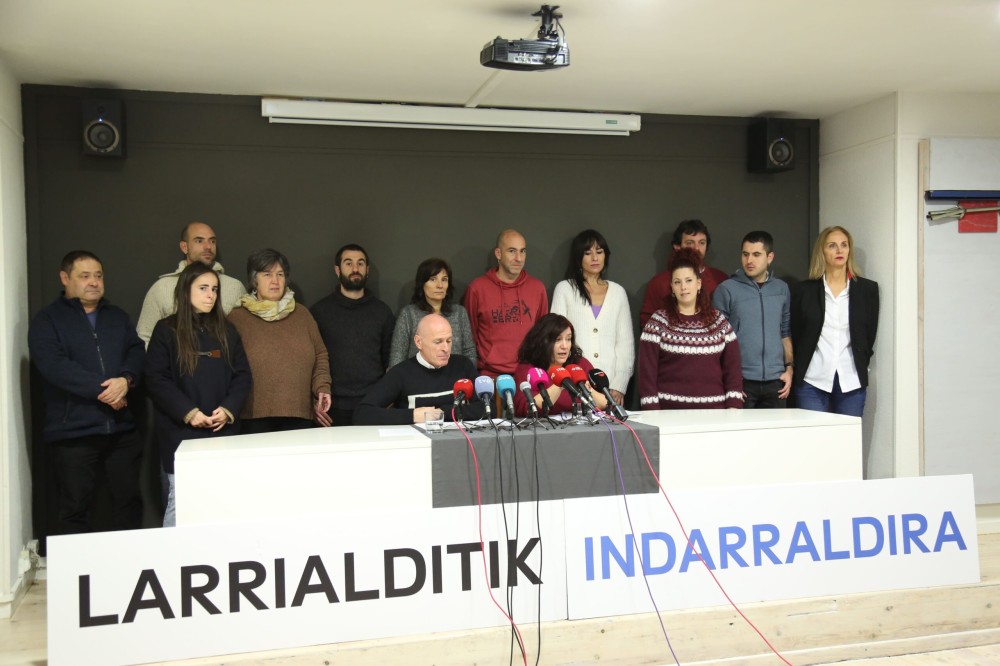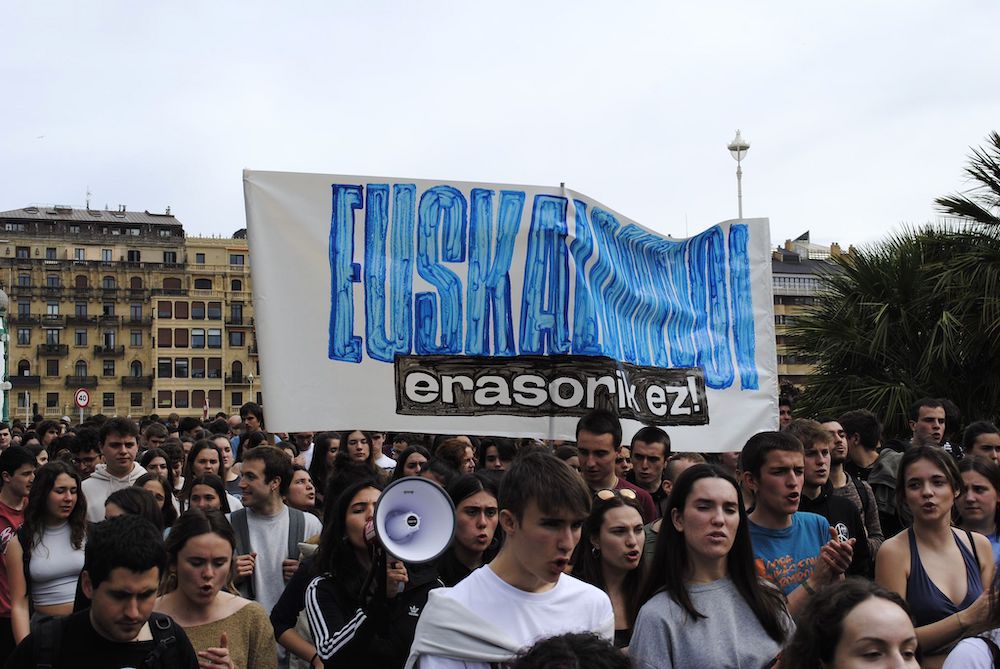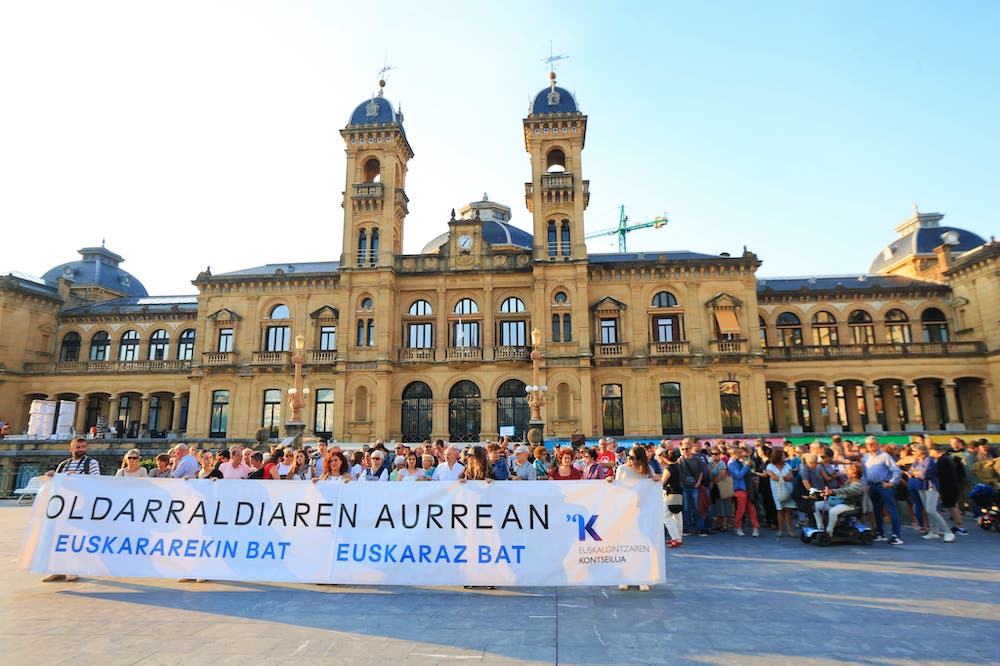A bus driver from San Sebastian denounces the Basque attitude
A citizen denounces that on May 2 a bus driver from San Sebastian, in addition to infringing his linguistic rights, sent him a reply in Basque. This has been communicated by the Observatory on Linguistic Rights. ARGIA has talked to that person to know what happened.

It happened on May 2 at 18:25 in Donostia. One family, with two young children, was waiting for bus number 26 on Urbieta Street. It was a rainy day, and because the kids were sitting in chairs when the bus arrived, he asked I to open the door. And to the driver. He asked for the first time in Basque (“Hello, forgive, can you open the back door, please? ). This first time the driver baffled that he didn't listen to him and reduced the volume of the radio. For the second time he told him in Basque: “Can you open the back door, please?” The driver’s response, with a bad face, was “I don’t understand you” (I don’t understand you). For the third time he had to request it in Spanish and the driver answered him “with pride”: “Now yes, have asked it right from the beginning” (Now yes, you only had to ask it right from the beginning). I.Y. He then made it clear that he, although from the beginning he was in Basque, asked him “with respect”, and that having a problem to understand the language did not give him reason to speak like this to him. The driver was proud to follow. Then he entered the bus.
I.Y. says he got off the bus “very angry”. They report to the Observatory on Linguistic Rights. This is not the first time that these infringements have taken place in the San Sebastian bus service, according to the information of the Observatory.
The Centre serves the citizens
“We see year after year that there are many violations in relation to direct care or services provided to citizens and that, although these institutions apologize, violations are repeated again.” This has been denounced by the director of the Centre for Linguistic Rights, Agurne Gaubeka. He says that these types of infractions are a consequence of the lack of knowledge of the Basque Country in the jobs. It also denounces that people working in these posts are not given guidelines to respect the linguistic rights of citizens. “That’s why, when citizens turn to these workers in Basque, they get negative and inadequate responses back,” he said. It says that these infringements also occur in places where there are legal obligations in relation to language rights, and the Centre considers that special attention should be paid to outsourced services. “Many of the contracts and clauses set out in them do not specify obligations in relation to language.”
The Observatory on Linguistic Rights is a foundation promoted and led by the Council of Euskalgintza. It helps overcome the obstacles to citizens who want to live in Basque in the face of violations of language rights. They offer citizens, associations and entities a free service called the Euskera Telefono to denounce violations of language rights.
From linguistics or glotophobia and, of course, hatred against Basque, we have often seen our Basque become the dandruff of all sticks. Last of all, the president of Kutxabank, Anton Arriola, has been shaking our language and giving us galantas.The President of Kutxabank,
... [+]
Euskal Herrian Euskarazek manifestazioa deitu du apirilaren 6rako, 11n EHEko bi kide epaituko dituztelako. Hiriburuetatik autobusak antolatzen ari dira. Bi helburu bete nahi dituzte, batetik, epaituak izango diren bi kideei babesa erakustea, eta bestetik, euskararentzat justizia... [+]
"Poloniar bat etortzen bada eta bost urte pasako baditu proiektu batean, joder agian ez zaio egoki irudituko seme-alabek euskaraz ikastea, ezta?", bankuko lehendakari Anton Arriolak adierazi duenez. Euskalgintzako eragileek gogor kritikatu dute eta esandakoa... [+]
Ba al dakizue frantses batzuk harritu egiten direla mugaren alde honetan ere euskaldunak bagaudela jakitean? Ba bai, harrigarria bada ere, behin, Donostian, frantses batzuei entzun nien sinetsi ezinik beren buruari galdetzen: “Saint-Sébastien est au Pays... [+]
Gasteizko 1 zenbakiko Auzitegi Kontentzioso-Administratiboak emandako epaia berretsi du EAEko Justizia Auzitegi Nagusiak. Lan poltsan parte hartzeko euskara maila altuenaren baliokide diren 3. eta 4. eskakizunak indargabetu zituen Gasteizko Auzitegiak.
Euskal Herrian Euskarazen arabera, Tolosako tren geltokiko segurtasun agente batek eraso egin zion militante bati, agenteari euskaraz hitz egiteko eskatu ziolako. Tolosako alkateak "kezka" adierazi du eta azalpenak eskatuko dituela jakinarazi.










